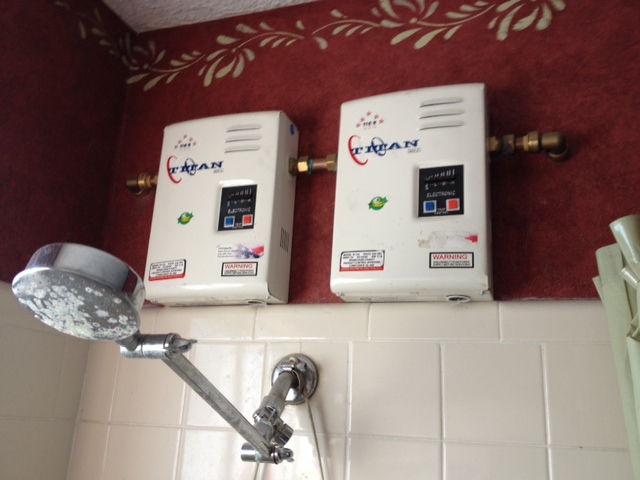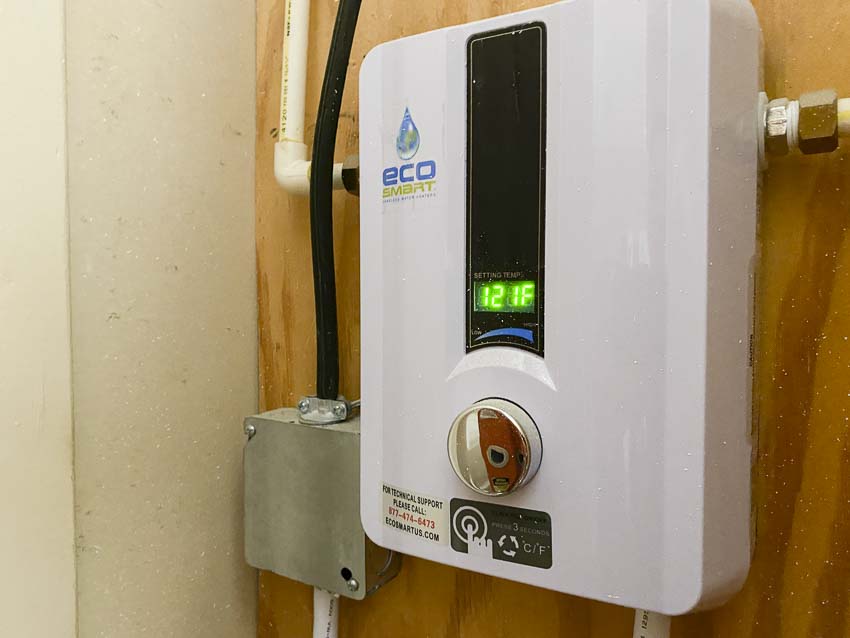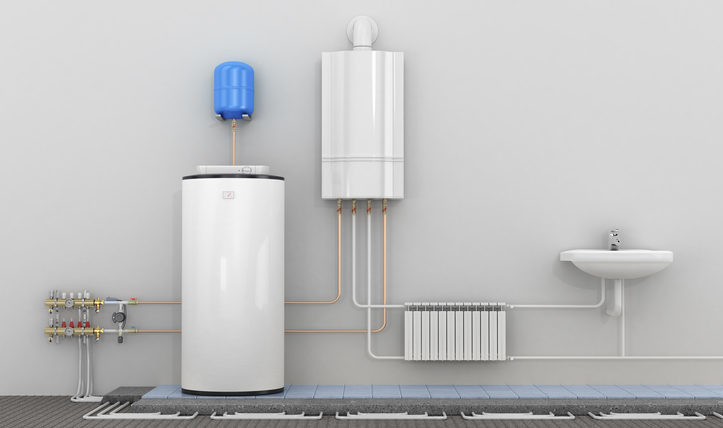Tankless water heaters generally use less electricity than traditional models. They heat water on demand, which can lead to energy savings.
Tankless water heaters are becoming increasingly popular among homeowners for their efficiency and space-saving design. Unlike traditional water heaters, which constantly heat water in a tank, tankless units heat water only as needed. This leads to significant energy savings, particularly in households with varying hot water demands.
With rising energy costs, many people seek solutions that lower their utility bills. Understanding how tankless water heaters work and their energy consumption can help you make an informed decision. This guide will explore the electricity usage of tankless water heaters, highlighting their efficiency and potential advantages for your home.
Page Contents
Introduction To Tankless Water Heaters
Tankless water heaters are becoming popular for their efficiency. They heat water only when needed, which saves energy. Traditional heaters keep water hot all the time, using more electricity.
Tankless technology offers instant hot water. This means no more waiting for a tank to fill. Many homes are switching to this technology for energy savings.
Tankless heaters work by heating water as it flows through the unit. A powerful heating element activates when a tap is opened. This allows for a constant supply of hot water.
Electricity Consumption Of Tankless Heaters
Tankless water heaters are often more energy-efficient than traditional models. They heat water only when needed, which can save electricity. This means they do not use energy when not in use. Traditional heaters, on the other hand, constantly heat water, leading to higher energy costs.
The electricity consumption of tankless heaters varies by several factors. The size of the heater plays a role. A larger unit may use more electricity. The temperature setting also affects usage. Higher temperatures require more energy to maintain.
| Factor | Impact on Usage |
|---|---|
| Size of Heater | Larger heaters consume more electricity |
| Temperature Settings | Higher settings increase energy use |
| Frequency of Use | More use leads to higher costs |
Evaluating Energy Efficiency
Tankless water heaters are known for their energy efficiency. They heat water only when needed. This can lead to lower energy bills compared to traditional heaters.
The Energy Factor (EF) rating measures a unit’s efficiency. A higher EF means better performance. Most tankless models have an EF of 0.80 to 0.99. This indicates they use less energy for the same output.
In real-world usage, actual efficiency may vary. Factors like water flow rate and temperature impact performance. Proper installation is crucial for optimal results.
| Model | EF Rating | Estimated Annual Cost |
|---|---|---|
| Model A | 0.95 | $300 |
| Model B | 0.90 | $350 |
| Model C | 0.85 | $400 |

Credit: www.greenbuildingadvisor.com
Installation And Operating Costs
The initial investment for a tankless water heater is often higher than traditional models. This cost includes the unit and installation fees. However, long-term savings can be significant due to lower energy bills.
Tankless heaters only use power when hot water is needed. This leads to energy efficiency and reduced costs over time. To determine the break-even point, compare the total costs of both systems.
| System Type | Initial Cost | Monthly Savings | Break-Even Time |
|---|---|---|---|
| Tankless Heater | $1,000 | $30 | Approximately 3 years |
| Traditional Heater | $500 | $0 | N/A |
Pros And Cons Of Going Tankless
Tankless water heaters offer many benefits. They provide hot water on demand. This means you never run out of hot water. They are also energy efficient and can save you money.
Installation takes less space. These heaters are smaller than traditional ones. They often last longer too, up to 20 years.
On the downside, tankless heaters can have high upfront costs. They may require special installation. Some users report inconsistent water temperature.
Electricity use can vary based on demand. Large families may need more power. It’s important to consider your household needs.

Credit: www.protoolreviews.com
Maintenance And Lifespan
Routine maintenance is important for tankless water heaters. Regular checks help keep them running smoothly. Cleaning filters and inspecting connections are key tasks. Schedule maintenance at least once a year. This can prevent bigger problems later on.
The expected lifespan of a tankless water heater is around 20 years. With proper care, they can last even longer. These systems are often more durable than traditional models. Investing in quality units also improves longevity.
| Maintenance Task | Frequency |
|---|---|
| Inspect Filters | Every 6 months |
| Flush System | Once a year |
| Check Connections | Every year |
Environmental Impact
Tankless water heaters help reduce carbon emissions. They heat water only when needed. This leads to lower energy usage compared to traditional heaters.
Using tankless heaters can lead to significant energy savings over time. They require less energy to operate, which is better for the environment.
| Features | Benefits |
|---|---|
| Energy Efficiency | Lower electricity bills |
| Compact Size | Saves space in homes |
| Long Lifespan | Less waste over time |
Tankless heaters can work with renewable energy sources. This makes them even more eco-friendly. Solar panels can power these heaters effectively.

Credit: majorenergy.com
Making The Switch To Tankless
Switching to a tankless water heater can save energy and money. Assess household needs before making the change. Consider the number of users and hot water demand.
Steps to transition from traditional to tankless include:
- Check the current water heater size and capacity.
- Evaluate the energy efficiency of your home.
- Choose the right tankless model based on needs.
- Hire a qualified plumber for installation.
- Understand the wiring requirements for the new system.
With careful planning, enjoy endless hot water without high electricity bills.
Conclusion
Tankless water heaters offer efficient heating without the constant energy drain of traditional systems. While they do use electricity, their on-demand functionality often leads to lower overall energy costs. By investing in a tankless model, you can enjoy hot water while minimizing your electricity bill.
Make an informed choice for your home.
